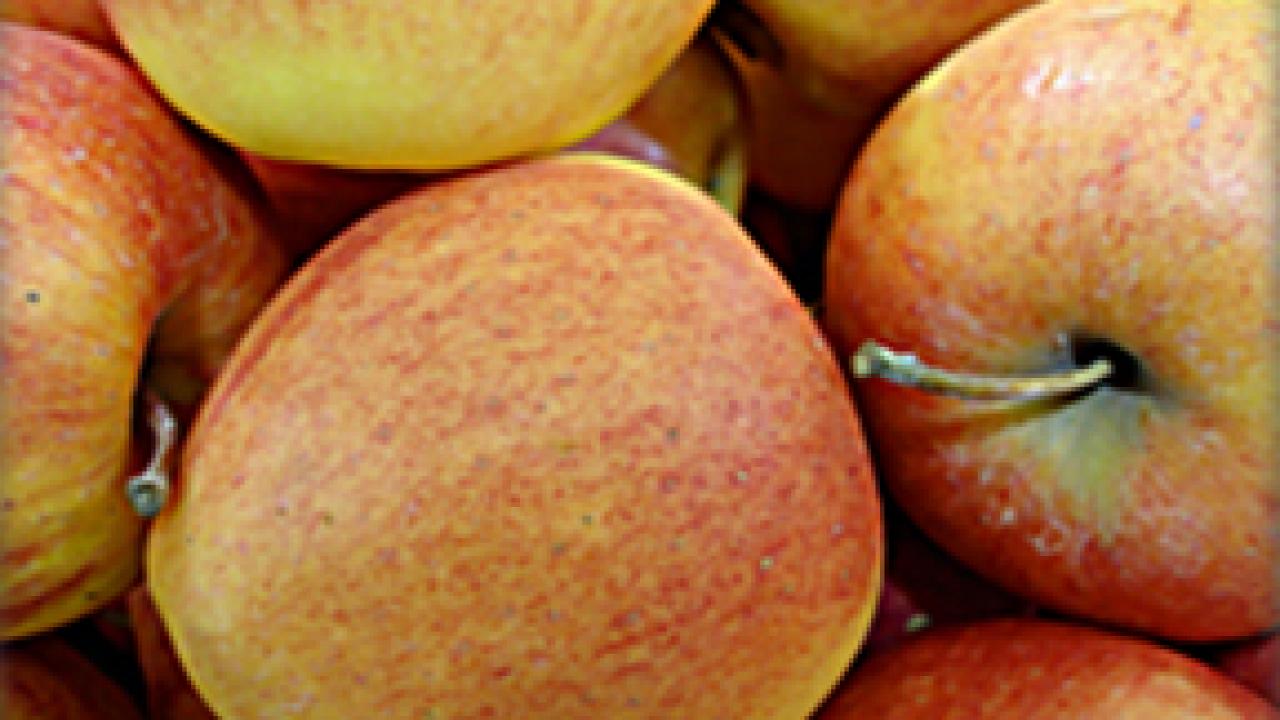Your mother was right. An apple a day may help keep you out of the doctor's office, and scientists are just beginning to find out why. Plenty of vitamins and minerals, as well as phytonutrients, or plant compounds, are packed into one baseball-sized piece of fruit.
Considerable research is centered on the role of phytonutrients that act as antioxidants, which are found in many fruits, red wine and tea. Antioxidants counteract chemicals in the blood that oxidize, or damage, certain molecules.
Flavonoids are the most common group of phytonutrients in foods. Apples are particularly high in a flavonoid called quercetin, which has high antioxidant activity.
Research in the UC Davis Department of Internal Medicine shows that not only do apples and apple juice contain a variety of phytonutrients, but that making apples a regular part of the diet may translate into real health benefits.
UC Davis recently completed a 12-week study of 25 healthy men and women who added either 12 ounces of 100 percent apple juice or two apples to their daily diets without any other diet changes and with no changes in exercise levels. Half of the test subjects drank apple juice for six weeks, then ate apples for six weeks. The other half ate apples for six weeks, then drank juice for six weeks.
Before the study and at each six-week interval, researchers measured something called "LDL oxidation lag time," which provides an indication of how long it takes for cholesterol to oxidize when exposed to certain chemicals. When LDL, or "bad" cholesterol is broken down in our bodies, it tends to accumulate along the walls of the coronary arteries and causes atherosclerosis. Hence, a longer lag time is associated with a reduced risk of heart disease.
The study showed clear beneficial effects after only six weeks. Study results were more dramatic among the subjects who were drinking apple juice, showing a 20 percent increase in lag time.
Other positive findings included reduced oxidation indicators and a 22 percent increase in dietary fiber.
Recent studies elsewhere revealed other benefits associated with eating apples: improved lung function, reduced risk of stroke and cancer, and inhibited cancer cell growth.
Apples are high in fiber and potassium, and contain no fat or salt. They also are an excellent source of boron, a trace mineral with largely unexplored health benefits. Preliminary studies indicate that boron may be helpful in retaining the beneficial health effects of estrogen during menopause.
Does this research show that people should load up on apples every day? No. But studies clearly indicate that apples and apple juice as part of a healthy, varied diet can confer significant health advantages. The DASH diet, developed for hypertension patients, is one recommended by many doctors and nutrition experts as a healthy choice for most people. It is low in fat, especially animal fat, high in whole grains, and includes eight to 10 servings of fruits and vegetables a day.
And, by the way, when eating a fresh apple, do not peel it first. Most of the fiber and antioxidants are in the peel. Worried about pesticides? Do not be. Laboratories have consistently found very low levels of pesticide residue, if any, on apple peels.
Hyson is a research dietitian in the Department of Internal Medicine.
Media Resources
Dave Jones, Dateline, 530-752-6556, dljones@ucdavis.edu
